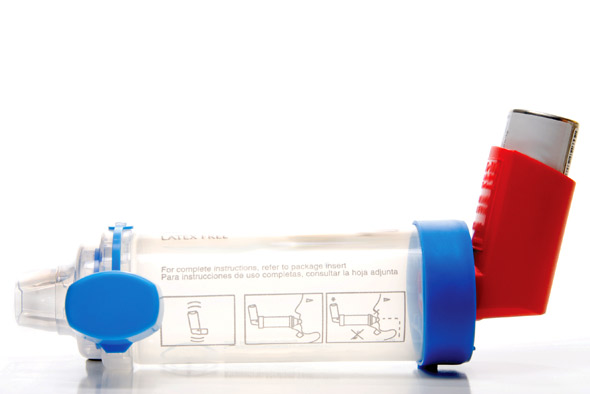
Just What the Doctor Ordered
COPD & Other Lung Diseases

A diagnosis of Chronic Obstructive Pulmonary Disease (COPD) or other lung disease is life-altering, but not the end of the world or a death sentence. As with any chronic conditions, early diagnosis and treatment are key to disease management.
Doctors use several medications to treat symptoms and exacerbations of COPD and other lung disease. Some medications may be taken on a regular basis, and others on an as needed basis. Medications may include:
Bronchodilators
Bronchodilators usually come in an inhaler and help the muscles around your airways to relax. Relaxing the muscles eases coughing and shortness of breath and helps make breathing easier. Bronchodilators come in the form of inhalers or liquid to be added to nebulizers. Short-acting bronchodilators are used before activities or in an emergency, and long-lasting bronchodilators are taken on a regular basis. Most often used in treatment of asthma, bronchodilators can also be used to treat pneumonia and other forms of COPD.
Steroids
Steroids help reduce inflammation in the airways and prevent exacerbations of lung disease. Usually prescribed as a last resort, in extreme cases or with advanced lung diseases, steroids can be taken through inhalers or in pill form. Steroids taken for long periods can have serious side effects including bruising, weight gain, diabetes, osteoporosis, cataracts and increased risk of infections. When doctors prescribe steroids, the benefits and risks are carefully outweighed to ensure that the medication is the right fit for the patient. In some cases steroids are used to prevent exacerbations or worsening of COPD. Steroids may be prescribed with bronchodilators, which can work together to make breathing easier and more effective.
Antibiotics
Infections of the respiratory system are especially dangerous for people with lung disease. Colds, pneumonia and influenza can aggravate COPD and other lung disease symptoms, therefore antibiotics are prescribed to help treat acute exacerbations.
Most people with COPD will need to take medications on a regular basis to control symptoms and prevent complications. Medications used to control COPD and other lung diseases allow patients to stay active and continue with their daily lifestyles to the best of their ability. You may also be prescribed a “rescue inhaler” for emergency situations that will open the airways in less than a minute to allow for better breathing. It’s important to follow the medication schedule suggested by your physician to keep COPD and other lung diseases under control.


